MercoPress. South Atlantic News Agency
Tag: Grupo Clarín
-
Thursday, March 15th 2012 - 02:52 UTC
Cristina Fernandez censors television program; former CNN reporter privileged witness

A former CNN in Spanish journalist Alberto Padilla was a privileged witness of censorship in Argentina, minutes before he was to be interviewed by a television channel in Buenos Aires: “the order to stop the program came directly from (Federal planning) minister De Vido”.
-
Wednesday, March 14th 2012 - 23:26 UTC
The Lady out of control: appeals to “Nazi, Mengele and anti Semitism” to attack the media
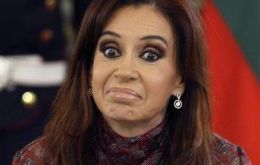
Argentine president Cristina Fernandez used the words “Nazi, Mengele and a scent of anti-Semitism” to describe a couple of articles in Buenos Aires leading newspapers which revealed the ups and downs in ‘palace intrigues” and a second critical of the expanding power of her son Maximo Kirchner with the youth organization La Campora.
-
Wednesday, December 28th 2011 - 22:45 UTC
Cristina Fernandez promulgates tough laws to control the media and social protest

Argentine president Cristina Fernandez has promulgated several bills, some of them considered controversial, sanctioned last week by Congress --where the ruling coalition has a comfortable working majority-- and which were published Wednesday in the Official Gazette.
-
Friday, December 23rd 2011 - 22:48 UTC
The Inter American Press Association trusts Argentine law regulating newsprint will be declared unconstitutional

The Inter American Press Association (IAPA) today described as “malicious” attempts by the government of Argentina to control press freedom through adoption of a law on the manufacture, sale and commercialization of newsprint, and said it trusted that the judiciary would annul a “law that is clearly unconstitutional because of its subjugation of principles concerning freedom of expression.”
-
Saturday, July 16th 2011 - 17:19 UTC
Clarin group heirs DNA-test negative to 1975/76 families, victims of dictatorship
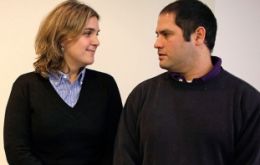
DNA tests on the adopted children of Argentina’s most powerful media family have failed to show any matches in a national gene bank where families of victims of the dictatorship (1976/1983) have donated their DNA.
-
Tuesday, July 12th 2011 - 01:41 UTC
Adopted heirs of Argentine media group test negative to first DNA tests
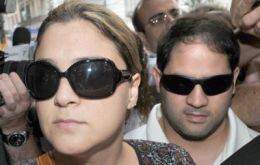
DNA tests from the adopted children of one of Argentina's richest women do not match blood samples from two families who suspect the siblings were stolen as babies from political prisoners in the 1970s, legal sources said on Monday.
-
Saturday, June 25th 2011 - 07:28 UTC
Clarin group heirs give DNA blood samples to quell suspicions about their biological origin
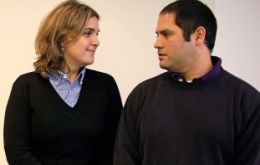
The adopted children of one of one of the wealthiest women in Argentina came forward to give blood and saliva samples Friday, hoping to quell suspicions they were stolen as babies from murdered political prisoners during military rule.
-
Wednesday, June 22nd 2011 - 23:11 UTC
Argentina’s Clarin owner siblings to have DNA blood tests on Friday

The (adopted) heirs of one of Argentina’s most powerful media conglomerates will have blood samples taken in a Buenos Aires hospital on Friday after they decided to voluntarily have DNA tests to determine whether they coincide with DNA samples of relatives from people killed during the Argentine dictatorship (1976/1983).-
-
Sunday, June 19th 2011 - 23:10 UTC
Clarin family yields to growing pressure from Argentine government
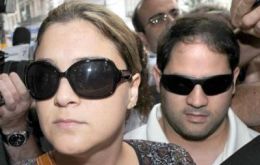
The adopted children of the influential Argentine media conglomerate ‘Clarin’ have agreed to have their blood drawn for DNA analysis. Blood samples from siblings Marcela and Felipe Noble Herrera will be checked at Argentina’s National Genetic Data Bank (BNDG).
-
Tuesday, April 5th 2011 - 22:12 UTC
Pickets’ leader demanding extortion sum from Clarin captured on video
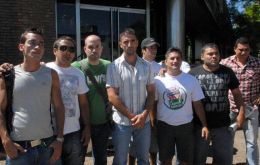
Argentina’s most important daily Clarin has filed an extortion complaint against the leader of the pickets that have prevented the circulation of the newspaper by blocking distribution at the press plant and who was recorded in a tape asking for the equivalent of 2.2 million US dollars to end the attacks.
